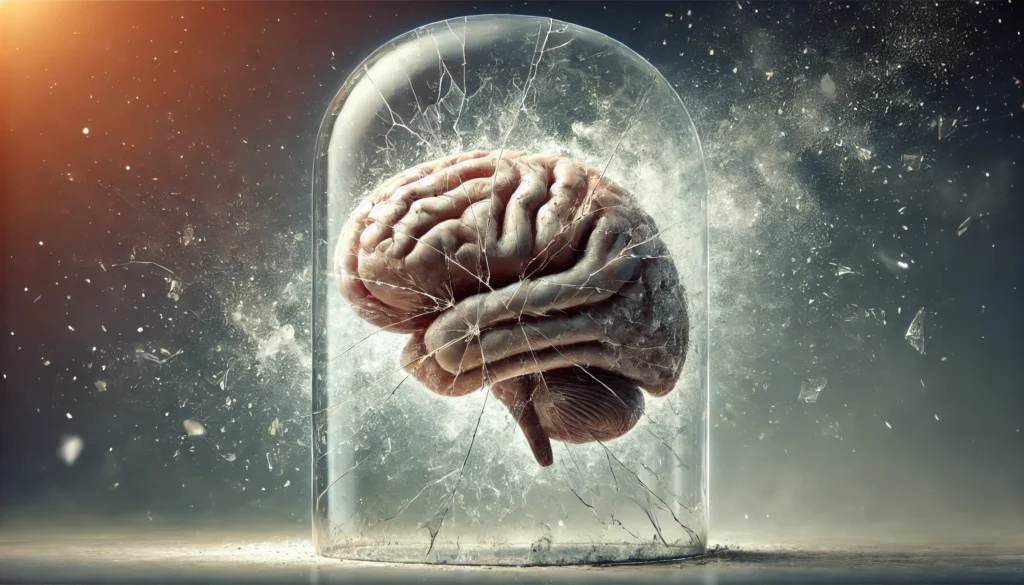Understanding Stress and Its Neurological Roots
Stress is an unavoidable part of human life, triggered by both external circumstances and internal interpretations. While short bursts of acute stress can be adaptive and even lifesaving, chronic stress—when prolonged and unrelenting—poses a grave threat to neurological health and overall well-being. The stress response begins in the brain, orchestrated primarily by the hypothalamic-pituitary-adrenal (HPA) axis. This triad of brain structures governs the release of cortisol, the primary stress hormone that helps the body respond to perceived threats. Yet, when stress becomes chronic, this adaptive mechanism backfires, leading to dysregulation across multiple brain systems.
You may also like : Best Things for Brain Health: Expert-Backed Strategies to Keep Your Mind Sharp
Stress and the brain share an intimate, complex relationship. The brain not only perceives and processes stressors but also bears the brunt of their long-term effects. Modern neuroscience has begun to unravel how persistent stress reshapes brain architecture, from cellular pathways to network-wide connectivity. Understanding how stress affects the brain is not merely an academic endeavor—it is a public health imperative.
Cortisol and the Brain: A Delicate Balance Disrupted
Cortisol is central to the stress response. Under normal conditions, cortisol helps regulate metabolism, modulate inflammation, and support memory formation. However, in chronic stress states, excessive cortisol floods the brain, disrupting its finely tuned balance. This hormonal deluge begins to alter neuronal function and survival in critical brain regions. Among these, the hippocampus, amygdala, and prefrontal cortex are particularly vulnerable.
The hippocampus, responsible for learning and memory, has a high density of cortisol receptors. Chronic exposure to elevated cortisol levels impairs neurogenesis—the formation of new neurons—and can even lead to hippocampal atrophy. Research consistently shows that individuals with chronic stress or depression often have smaller hippocampal volumes, indicating that stress and brain function are intricately linked through hormonal pathways.
Meanwhile, the amygdala—the brain’s emotional processing center—becomes hyperactive and enlarged under chronic stress, amplifying fear responses and contributing to anxiety disorders. The prefrontal cortex, essential for executive function and decision-making, experiences reduced activity and structural deterioration. As these brain areas deteriorate under chronic stress, a vicious cycle emerges: impaired cognition and emotional regulation further exacerbate stress perception, leading to a downward neurological spiral.
What Part of the Brain Does Stress Affect Most?
To understand the full scope of stress and how it affects the brain, it’s crucial to identify which brain regions suffer the most under its influence. The hippocampus, as previously discussed, is highly susceptible to cortisol-induced damage. This region’s vulnerability makes it a key marker in understanding how cognitive decline can result from prolonged stress exposure.
Next is the amygdala, whose enlargement under chronic stress conditions heightens emotional reactivity. The amygdala becomes more sensitive to negative stimuli, often interpreting benign situations as threats. This hypervigilant state can manifest as chronic anxiety, panic disorders, or post-traumatic stress disorder (PTSD), illustrating how stress and brain function converge in psychiatric pathology.
The prefrontal cortex is another critical area affected by stress. This region governs planning, reasoning, impulse control, and complex decision-making. Chronic stress reduces gray matter in the prefrontal cortex, weakening the individual’s ability to regulate emotional responses and make rational decisions. As stress continues to impair this brain region, individuals may find themselves increasingly reactive, less focused, and prone to maladaptive behaviors.
Emerging research also suggests that the cerebellum—long considered a purely motor control center—may be implicated in stress response. New evidence indicates that the cerebellum may help modulate emotional processing and autonomic regulation under stress. The effects of stress on the brain are thus more widespread than previously believed, implicating nearly every major cerebral structure involved in cognition and emotion.

Does Stress Result in Brain Cell Loss? A Cellular Perspective
One of the most alarming concerns regarding chronic stress is whether it leads to permanent brain damage. The question “does stress result in brain cell loss?” is not merely theoretical—it holds profound implications for aging, mental health, and neurodegenerative disease.
Scientific evidence supports that chronic stress can indeed lead to neuronal loss, particularly in the hippocampus. Rodent studies show that animals subjected to chronic stress exhibit reduced dendritic branching and neuronal shrinkage in this region. In humans, neuroimaging studies reveal that people with prolonged stress exposure often show reduced hippocampal volume, consistent with loss or dysfunction of brain cells.
In addition to direct neuronal loss, stress also impairs the brain’s ability to generate new cells. Neurogenesis, which occurs throughout life in the hippocampus, is markedly suppressed under chronic stress conditions. Cortisol inhibits the proliferation of neural stem cells, reduces the survival of new neurons, and interferes with their integration into existing circuits. This disruption not only leads to memory deficits but also hinders emotional resilience and adaptability.
Further compounding the problem is inflammation. Chronic stress triggers systemic and neuroinflammation, which in turn accelerates oxidative stress and excitotoxicity—both of which are toxic to brain cells. The combination of reduced neurogenesis, heightened inflammation, and direct cortisol-induced toxicity answers the question with unsettling clarity: yes, stress does result in brain cell loss.
Stress-Induced Neuroplasticity: A Double-Edged Sword
Neuroplasticity—the brain’s ability to reorganize itself by forming new neural connections—is often viewed as a positive trait. However, neuroplasticity is not inherently beneficial. Under chronic stress, maladaptive neuroplasticity can occur, reinforcing harmful thought patterns, emotional reactivity, and dysfunctional behaviors.
Stress-induced changes in neural circuitry often solidify pathways associated with fear and anxiety. For example, repeated exposure to stressful stimuli can strengthen the synaptic connections between the amygdala and hippocampus, making stress memories more vivid and harder to extinguish. This process underlies conditions such as PTSD, where trauma-associated cues evoke intense emotional reactions long after the threat has passed.
Moreover, chronic stress alters synaptic plasticity in the prefrontal cortex, reducing the brain’s capacity for cognitive flexibility. This makes it harder for individuals to adapt to new situations, think creatively, or shift attention away from negative thoughts. Over time, this rigidity contributes to depression, anxiety, and other mood disorders.
Interestingly, not all stress-induced neuroplasticity is detrimental. In controlled doses, stress can enhance learning and memory by facilitating synaptic remodeling. However, the transition from adaptive to maladaptive neuroplasticity hinges on stress duration, intensity, and individual susceptibility. The same mechanisms that once promoted survival now act as engines of neurological decline when stress becomes chronic.
Stress Cerebral Effects: Mapping the Brain’s Response
The phrase “stress cerebral” refers to the full spectrum of effects that stress exerts on brain structure and function. From neurotransmitter imbalances to white matter degradation, the cerebral consequences of stress are profound and far-reaching.
One key area affected is the balance of neurotransmitters. Chronic stress disrupts levels of serotonin, dopamine, and norepinephrine—chemicals essential for mood regulation, motivation, and cognitive function. This imbalance contributes to the development of mood disorders and exacerbates symptoms in individuals already predisposed to mental illness.
White matter integrity also suffers under chronic stress. White matter, composed of myelinated axons, ensures efficient communication between brain regions. Research has found that individuals exposed to prolonged stress exhibit altered white matter microstructure, particularly in tracts connecting the prefrontal cortex with the amygdala and hippocampus. These disruptions may underlie the impaired emotion regulation and cognitive dysfunction commonly observed in chronic stress conditions.
Brain imaging studies further reveal changes in cerebral blood flow under stress. Regions such as the anterior cingulate cortex and insula show altered activity, reflecting changes in self-awareness, interoception, and emotional processing. Together, these findings underscore the widespread stress cerebral impact that alters both structure and function throughout the brain.

Effects of Stress on Brain Function: Cognitive and Emotional Fallout
The effects of stress on brain function extend beyond structural changes to impact nearly every domain of cognition and emotional regulation. Memory, attention, problem-solving, and emotional resilience all suffer under the weight of chronic stress.
One of the earliest casualties of prolonged stress is working memory—the mental workspace used to hold and manipulate information in real-time. Chronic stress impairs the dorsolateral prefrontal cortex, the region responsible for working memory, reducing mental clarity and the ability to focus. This explains why stressed individuals often struggle with simple tasks, forget appointments, or feel overwhelmed by routine responsibilities.
Decision-making is another domain deeply affected by stress. Under chronic stress, the brain shifts control from the reflective, rational prefrontal cortex to the impulsive, emotionally driven amygdala. This shift leads to riskier choices, poor judgment, and a reliance on habitual behaviors that may be maladaptive. The stress and brain function relationship becomes apparent in high-stress professions where decision-making under pressure can have life-or-death consequences.
Emotionally, stress amplifies sensitivity to negative stimuli and reduces one’s capacity for joy, gratitude, and contentment. This emotional blunting is linked to reduced activity in the brain’s reward circuitry, particularly the nucleus accumbens. As the brain becomes less responsive to positive experiences, a state of learned helplessness can emerge, further deepening depressive symptoms and social withdrawal.
Can Stress Cause Brain Damage? The Long-Term Consequences
The question “can stress cause brain damage?” is no longer speculative. Mounting evidence from longitudinal studies, brain imaging, and post-mortem analyses confirms that chronic stress inflicts lasting damage on the brain’s structural and functional integrity.
At the cellular level, stress-induced damage manifests through dendritic retraction, synaptic loss, and impaired neurogenesis. These microscopic injuries accumulate over time, leading to macroscopic changes observable on brain scans—such as cortical thinning and ventricular enlargement. These features are commonly seen in individuals with chronic depression, PTSD, and neurodegenerative diseases.
Oxidative stress, another byproduct of chronic psychological stress, accelerates neuronal aging. Free radicals generated during chronic stress overwhelm the brain’s antioxidant defenses, damaging DNA, proteins, and cell membranes. This biochemical assault contributes to cognitive decline and increases the risk of Alzheimer’s disease and other forms of dementia.
Moreover, stress-induced inflammation is now recognized as a key player in neurodegeneration. Pro-inflammatory cytokines released during chronic stress can cross the blood-brain barrier, activating microglia—the brain’s resident immune cells. While acute activation of microglia aids in tissue repair, chronic activation leads to a neurotoxic environment that hastens brain aging.
In sum, chronic stress does not merely affect how we think and feel—it reshapes the brain in ways that compromise long-term health. The answer to whether stress can cause brain damage is a resounding yes, underscoring the need for proactive stress management strategies across the lifespan.
How to Reverse Brain Damage from Stress: Hope Through Neuroregeneration
While the neurological toll of chronic stress is sobering, the brain possesses remarkable resilience. The question of how to reverse brain damage from stress is met with growing optimism thanks to advances in neuroscience, lifestyle medicine, and psychotherapeutic interventions.
First and foremost, stress reduction is essential. Mindfulness-based stress reduction (MBSR), meditation, and cognitive-behavioral therapy (CBT) have all been shown to lower cortisol levels and promote structural brain recovery. Regular mindfulness practice increases gray matter density in the hippocampus and prefrontal cortex, effectively reversing some of the damage caused by chronic stress.
Physical exercise is another powerful neuroregenerative tool. Aerobic activity boosts brain-derived neurotrophic factor (BDNF), a protein that supports neuron growth and survival. Studies have found that consistent exercise increases hippocampal volume and improves cognitive function in both healthy individuals and those with mood disorders. This makes exercise one of the most accessible strategies for reversing stress-related brain damage.
Nutrition also plays a vital role. Diets rich in omega-3 fatty acids, antioxidants, and anti-inflammatory compounds support brain health and counteract the damaging effects of stress. Foods such as fatty fish, berries, leafy greens, and turmeric provide essential nutrients that promote neurogenesis and reduce inflammation.
Finally, sleep is indispensable for brain repair. Chronic stress often disrupts sleep, creating a vicious cycle of cognitive decline and emotional dysregulation. Prioritizing high-quality sleep—through good sleep hygiene, regular schedules, and treatment of sleep disorders—can dramatically enhance the brain’s ability to heal from stress-induced injuries.
The ability to reverse brain damage from stress lies in a multifaceted approach that combines psychological, behavioral, and biological strategies. With sustained effort, the brain can recover, adapt, and even thrive in the face of past adversity.
Frequently Asked Questions: How Stress Affects the Brain
1. Can stress permanently alter the way the brain functions, even after the stressor is gone?
Yes, stress can lead to long-lasting changes in brain function, particularly when exposure is chronic and unmanaged. These changes are not limited to emotional regulation but extend to decision-making, impulse control, and memory consolidation. Even after the removal of a stressor, the brain may retain maladaptive neural connections that reflect stress and how it affects the brain over time. Neuroplasticity enables some reversal, but only when supported by sustained lifestyle changes and therapeutic interventions. These long-term shifts highlight how the effects of stress on brain function persist beyond the immediate moment.
2. What are some unexpected ways chronic stress impacts brain connectivity and coordination?
One lesser-known effect is how chronic stress disrupts the brain’s default mode network (DMN), which plays a key role in introspection, creativity, and social cognition. Under normal circumstances, this network operates when the mind is at rest; however, prolonged stress cerebral disruptions can cause hyperactivity or disconnection within the DMN. This may lead to intrusive thoughts, difficulty in social settings, or impaired creative thinking. Understanding what part of brain does stress affect helps explain why even seemingly unrelated cognitive abilities may decline under chronic pressure. These disruptions underscore how stress and brain function are interconnected in more nuanced ways than just emotional response.
3. Does chronic stress increase susceptibility to neurodegenerative diseases?
Emerging evidence suggests that individuals with long-term exposure to stress have an elevated risk for neurodegenerative diseases such as Alzheimer’s and Parkinson’s. This is not only due to cortisol-induced damage but also because stress amplifies oxidative stress and neuroinflammation—two central mechanisms in neurodegeneration. What negative effects does chronic stress have on the brain? One crucial impact is that it compromises the blood-brain barrier, allowing peripheral inflammatory agents to enter and harm brain tissue. These pathways help explain how stress and the brain interact in aging populations where cognitive decline is accelerated. Early intervention can be crucial for those with genetic predispositions to brain-based diseases.
4. Are children and adolescents more vulnerable to the effects of chronic stress on the brain?
Absolutely—developing brains are highly sensitive to environmental stressors, and chronic stress can derail normal maturation of the prefrontal cortex and hippocampus. These effects of stress on the brain during critical windows of development can result in lifelong emotional dysregulation, learning difficulties, or maladaptive coping strategies. Children exposed to prolonged household conflict, poverty, or trauma show clear neurobiological changes in brain imaging studies. These changes suggest that stress and how it affects the brain in youth may lay the groundwork for adult mental health disorders. Early interventions such as family therapy, stable routines, and stress literacy can dramatically alter this trajectory.
5. How does chronic stress affect creativity, innovation, and abstract thinking?
Few people realize that one of the more insidious effects of stress on brain function is the suppression of divergent thinking—the ability to generate new and diverse ideas. Stress shifts brain activity from the associative networks to more rigid, survival-oriented processing pathways, reducing our cognitive flexibility. Over time, this constriction in thought limits creative insight and problem-solving capacity. For those in innovation-driven industries, understanding what does stress do to the brain can illuminate barriers to productivity and imagination. When stress cerebral activity dominates, we are more likely to rely on habit than vision.
6. Does stress result in brain cell loss, and if so, is the damage the same in all individuals?
Yes, research confirms that prolonged stress does result in brain cell loss, particularly in areas like the hippocampus. However, genetic factors, prior life experiences, and resilience mechanisms all influence the extent of damage. Individuals with robust social support or who engage in regular mindfulness practices may experience less neuronal loss than those without such buffers. When asking, “does stress result in brain cell lose,” the answer is complicated by these individual differences, even though the biological pathways—like cortisol overload and inflammation—are shared. Monitoring emotional health proactively may help prevent this loss from accumulating to dangerous levels.
7. How does unrelenting stress impact the brain’s reward system and motivation pathways?
One of the overlooked answers to the question “how does stress affect the brain” lies in its impact on dopamine circuits. Chronic stress dampens dopamine production and receptor sensitivity in areas like the nucleus accumbens, which controls motivation and reward-seeking behavior. This contributes to anhedonia—a diminished capacity to experience pleasure—and may partially explain why stress is so often linked with depression. In workplace settings, decreased intrinsic motivation and burnout may stem from these neural changes. Long-term exposure can create a feedback loop that reinforces disengagement and emotional flatness.
8. Can stress cause brain damage even if you’re not consciously feeling anxious? Surprisingly, yes. Many individuals under chronic low-level stress don’t experience overt anxiety but still suffer internal physiological dysregulation. These subtler effects of stress on the brain—such as low-grade inflammation, hormonal imbalances, and sleep disturbances—can quietly accumulate, leading to structural changes over time. Therefore, asking “can stress cause brain damage” should not be limited to dramatic episodes of panic or trauma. Quiet burnout, sleep debt, or caregiving fatigue can be equally corrosive. The stealthy nature of stress makes regular self-assessment essential.
9. What are the most advanced therapeutic techniques for reversing stress-related brain damage?
While traditional strategies like exercise and therapy remain foundational, newer methods such as transcranial magnetic stimulation (TMS), neurofeedback, and psychedelic-assisted therapy show promise in rewiring damaged neural circuits. For example, TMS has been used to restore prefrontal cortex activity in people with depression rooted in chronic stress. In learning how to reverse brain damage from stress, these modalities offer hope where conventional methods have fallen short. Coupling these innovations with lifestyle-based neuroregeneration—like sleep hygiene and anti-inflammatory nutrition—can yield comprehensive brain recovery. Integrating cutting-edge therapies with holistic wellness may be the future of cognitive resilience.
10. Are societal factors amplifying the neurological impact of stress today more than in the past?
Absolutely. The constant digital stimulation, 24/7 news cycles, economic pressures, and reduced community cohesion create an environment in which chronic stress is nearly unavoidable. Unlike acute stressors of the past, today’s triggers are often psychological and unrelenting. This continuous low-grade activation of the HPA axis alters the stress cerebral feedback loops, making the effects of stress on the brain more pronounced and difficult to shut down. Knowing what part of brain does stress affect becomes even more urgent in a society where downtime is rare. Cultivating collective strategies for rest, mindfulness, and disconnection may be essential public health interventions in the years ahead.

Conclusion: Breaking the Cycle of Stress and Brain Decline for Lifelong Cognitive Vitality
The effects of stress on the brain are profound, multidimensional, and far-reaching. Chronic stress alters brain structure, impairs cognitive and emotional function, and accelerates the aging process. From the hippocampus to the prefrontal cortex, the impact of stress and how it affects the brain has been well documented in scientific literature, confirming that stress can cause brain damage and even result in brain cell loss.
However, this narrative is not solely one of decline and despair. The brain’s neuroplastic capacity provides a powerful counterpoint to the degenerative forces of chronic stress. By understanding what part of the brain stress affects, how stress cerebral activity unfolds, and the mechanisms through which damage occurs, we empower ourselves to intervene strategically. Whether through exercise, mindfulness, nutrition, or sleep, reversing brain damage from stress is possible—and essential for longevity and cognitive vitality.
Stress and brain function are inseparably linked, but so too are healing and neuroregeneration. In addressing the central question—how does stress affect the brain?—we arrive at a vital truth: while stress can erode the very foundations of thought and emotion, deliberate, science-backed actions can restore what was lost. By breaking the cycle of chronic stress, we don’t merely protect the brain—we nurture a foundation for resilience, clarity, and thriving throughout the human lifespan.
neuroinflammation and cognition, brain fog from chronic stress, cortisol and memory loss, emotional burnout symptoms, hippocampal shrinkage, mental fatigue and aging, executive function decline, trauma and brain chemistry, resilience and brain plasticity, brain repair after trauma, neurogenesis and recovery, stress-related cognitive decline, chronic anxiety and brain health, prefrontal cortex dysfunction, mood disorders and brain structure, psychological stress and aging, neurobiological effects of worry, mind-body interventions for stress, cellular aging and stress, adaptive vs maladaptive stress responses
Further Reading:
The Impact of Chronic Stress on Brain Function and Structure
Disclaimer
The information contained in this article is provided for general informational purposes only and is not intended to serve as medical, legal, or professional advice. While Health11News strives to present accurate, up-to-date, and reliable content, no warranty or guarantee, expressed or implied, is made regarding the completeness, accuracy, or adequacy of the information provided. Readers are strongly advised to seek the guidance of a qualified healthcare provider or other relevant professionals before acting on any information contained in this article. Health11News, its authors, editors, and contributors expressly disclaim any liability for any damages, losses, or consequences arising directly or indirectly from the use, interpretation, or reliance on any information presented herein. The views and opinions expressed in this article are those of the author(s) and do not necessarily reflect the official policies or positions of Health11News.


